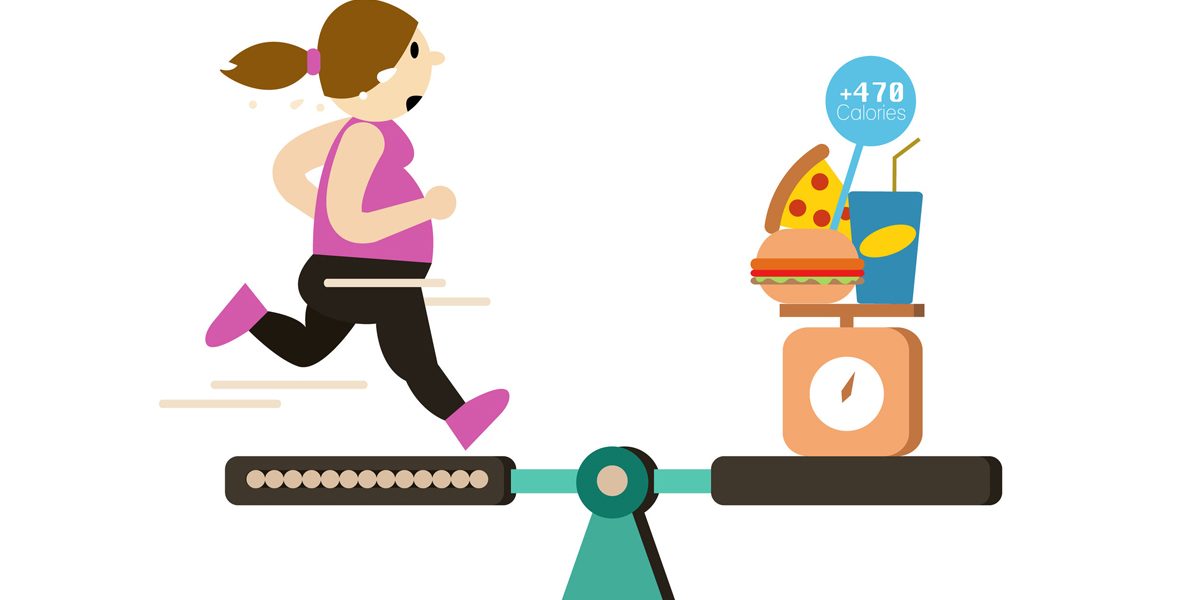When it comes to maintaining or achieving a healthy weight, we’ve all heard the conventional wisdom to eat better and be active. But what does this even mean? Diet and exercise are pretty vague terms for someone trying to take charge of their health. This ambiguity leads to many pitfalls that hinder or even reverse one’s best intentions. A common misconception is to overestimate the effect of exercise and underestimate the power of a healthy diet. This becomes especially problematic for those trying to lose weight. Read on for some knowledge you can use to your advantage to empower your health and propel your efforts.
Ultimately, it all boils down to calories. The amount you consume and expend has the most direct impact on body weight. This is where many people become discouraged in their weight loss/control efforts. Let’s face it. Calories are boring, and people typically don’t want to think about them. It is much easier to not concern yourself with restrictions and focus more on taking action (i.e., working out). How else would you explain the surge in exercise equipment sales around New Years? Exercise is essential, and there are a million reasons you should do it, but unless you run marathons on a regular basis, its direct impact on weight is minimal.
Let’s say you’re watching a movie with some friends late at night, and they all decide to order a pizza. Everyone else eats three or four pieces, but you’re trying to be good, so you stop at two and choose water as your beverage. You even decide to go run three miles at the gym the next morning to “burn it off.” Well, the sad truth is that you consumed about 600 calories (give or take, depending on the pizza), and all that running sizzled a mere 300 (depending on various physical factors)—only half of your indulgence. Keep that up, and it’s not surprising why so many people accidentally gain the freshman 15 despite their efforts at the gym.
In fact, if one pound of body fat is approximately 3,500 calories, and running one mile burns around 100 (again, a rough, but useful estimate), you would need to run 35 miles just to lose one pound. That’s a mile a day for about a month, or 5 miles a day for a week if you’re really ambitious. Ain’t nobody got time for that!
An alternative to losing this pound, however, could be to cut out 500 calories a day for a week. For college students, all this requires is to let go of a few bad habits. Instead of ordering a 450-calorie muffin, have oatmeal for 150, and instead of drinking a glass of orange juice, opt for water and save yourself another 200. You can do this with healthy foods as well. For example, an orange has about half the calories of an apple.
You don’t need to track every single calorie; that would be exhausting. Just being mindful about excess calories and glancing over nutrition labels are easy habits to pick up. Make a list of the foods you consume most often and look up their nutritional information; this is something you need only do once, and the knowledge will stay with you to help you make better choices.
When it comes to your weight, it really is a numbers game, and the numbers associated with food far outweigh what you can achieve on an elliptical. Now, that’s not to say that exercise isn’t important. In fact, it is probably one of the most important things you can do for your health. But when it comes to losing weight, if I wanted to save 100 calories, I would much rather order my sandwich with no mayo than run an extra mile on the treadmill.
Article by Brynn Kron
Feature Image Source: Weight Loss Resources
























